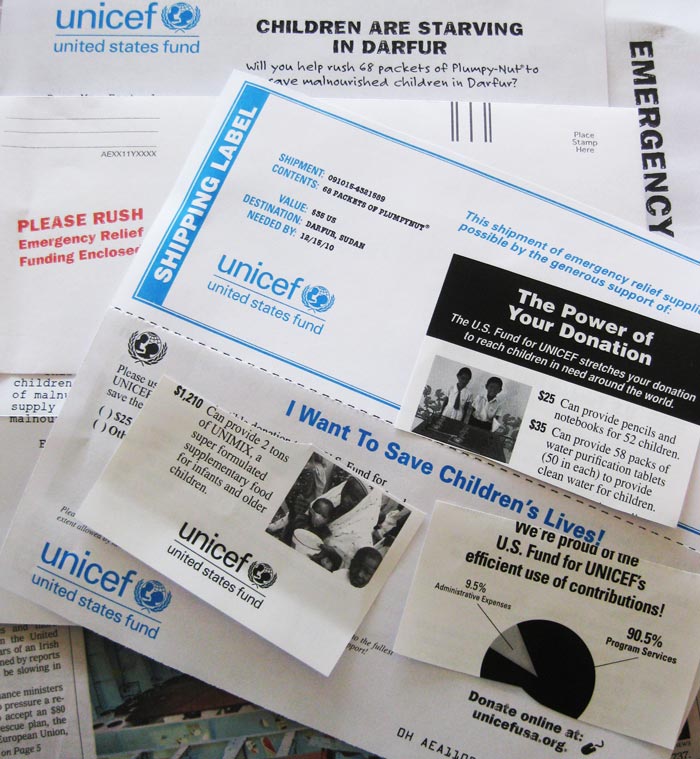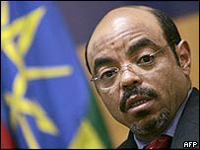UPDATE 2: Another proposal received from Unconfirmed Sources: Politicians supporting UN funding will be required to incorporate all of the text below into one of their own speeches to their own voters.
UPDATE: Just got a new proposal from the Center for Unacceptable Common Sense: Anyone funding UN should internalize the effect of their funding on creation of UN prose. First proposed tax on you: you are required to read all 1000+ words below and recite once for every $100K of funding.
productive and interactive discussions during the high-level policy dialogue with the international financial and trade institutions on sustainable development in the context of climate change, development cooperation and the threats to the global economy. Participants emphasized the need for greater coordination among the institutions.
A key message of the Forum was the need to build a broader consensus around the aid effectiveness agenda.
These events have served to deepen the discussions and promote consensus building in partnership with key stakeholders on issues in the Council’s agenda.
a Ministerial Declaration, which underscored the need for urgent, collective and collaborative action by all
members of the international community in several areas of global concern
Moreover, new challenges require urgent attention and collective action.
to facilitate inclusive policy dialogue and policy review on key development cooperation issues
to contribute to the latest efforts for promoting collective solutions, including strengthening governance, creating markets for sustainable development, strengthening global cooperation,
.. underlined the need to generate political will to put prudent policies into action
new challenges, many of which require our urgent attention and collective action.
At the same time, challenges also offer opportunities. The need to engage all key actors in this process is widely recognized. We must persist in pursuing truly concerted action
All countries certainly need policies and institutions that are flexible and tailored to their changing domestic and external circumstances and their individual challenges.
framework is not sufficiently responsive to development issues that cut
across multiple sectors such as human rights, gender equality and environmental sustainability. The Development Cooperation Forum should give due attention to these cross-cutting imperatives.
will enable the Council to move forward with firm commitment and strong political will to implement.
need to develop coherent and integrated approaches to development, which place the issue of sustainability at the center of development strategies.
have brought renewed dynamism to the implementation of development goals, by promoting greater
interaction among the different constituencies. The inclusion of civil society organizations, parliamentarians as well as local government and private sector representatives is essential in sustaining the engagement and commitment of all stakeholders in bridging the implementation gap.
..has become much more than just a month-long meeting in New York. The substantive session is a culmination of the various activities
..can benefit from the Council’s thorough work based on extensive regional consultations, global consultative forums and above all its broad-based engagement, which provides all perspectives to multilateral deliberations. I believe that Council’s deliberations and debates during this session would
greatly enrich discussions and outcomes of the important development related
conferences and events. The Council has shown that it is increasingly becoming better equipped to assess
progress on the ground and galvanize action at national, regional and international levels.
New global, regional and local approaches are needed given the unprecedented confluence of crises that at times require conflicting solutions.
Given the complex situation, he enumerated several policy options for governments to consider.
He stressed that policy makers need to respond flexibly,. No one country can overcome all the complex and
inter-related challenges on its own. Therefore, {he} called for international cooperation to help find global solutions to interrelated global problems. International institutions should not operate in isolation.
a unique opportunity to re-energize the mutual accountability framework
He appealed to governments and international financial institutions to take a more proactive approach to rapidly evolve coherent policy frameworks and incentives
Yet, in an interdependent world, many of the threats and challenges cannot be met by governments acting on their own. They require collective international action. Multilateral solutions, based on full participation and open dialogue, remain the best hope for providing a secure economic future for all.
We need a clear view of what is to be done at the global level, what at the regional level, and what at the national level. At the same time, short-term crises require their own strategies. we really do need a long-term strategy, aside from the immediateemergency needs
the international community agreed on a mutual accountability framework for development cooperation. Pursuant to that framework, developing countries have taken important steps to strengthen governance and improve the quality of their economic policies and institutions
..actively engaged in supporting the agenda outlined, working closely with countries and in partnership with bilateral agencies and multilateral institutions.
the World Bank looks forward to still closer partnership with the Economic and Social Council, to make the alliance between Council’s political message and the Bank’s comprehensive development focus even more effective and fruitful.
As part of the efforts to strengthen the United Nations Economic and Social Council, Member States, …mandated the Council to convene a high level biennial Development Cooperation Forum to review trends in international development cooperation, including strategies, policies and financing; promote greater coherence among the development activities of different development partners; and strengthen the normative and operational link in the work of the United Nations.
as a key venue for global dialogue and policy review of the effectiveness and coherence of international
development cooperation. … Forum also reaffirmed the demand for an inclusive and universally recognized space for discussions on international development cooperation. By giving voice to a wide range of stakeholders, including civil society, parliaments, local governments and the private sector, the Forum gave promise of becoming an effective global platform for representative, participatory and multistakeholder dialogue on major development cooperation issues.
Stakeholders are encouraged to continue to engage in the upcoming consultations and to interact with the
Council and the United Nations Department of Economic and Social Affairs to ensure that all voices are heard in the preparations for the Forum. The Department will also continue to provide impartial, professional and responsive policy analysis and review of gaps and obstacles to effective and coherent international development cooperation.
 There is a common view that Muslims don't share the values of liberty and democracy, as expounded by, say, to take a random example, Michele Bachmann from a few years ago.
Do recent events vindicate those who had already argued there was a universal hunger for liberty? One of them was Michael Novak, who says today in a Wall Street Journal oped (gated, sorry) today:
There is a common view that Muslims don't share the values of liberty and democracy, as expounded by, say, to take a random example, Michele Bachmann from a few years ago.
Do recent events vindicate those who had already argued there was a universal hunger for liberty? One of them was Michael Novak, who says today in a Wall Street Journal oped (gated, sorry) today: From Aid to Equality
From Aid to Equality












